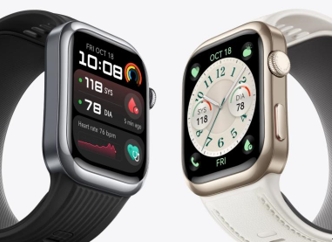What Technologies Can Be Used to Monitor Your Physical Health
Modern technology has revolutionized the way we monitor and maintain our physical health. From wearable devices to smart apps, staying informed about your well-being has never been easier. These tools provide valuable insights into your body’s performance, helping you make healthier choices and take proactive steps toward better health. Let’s explore some of the top technologies available for monitoring your physical health.

Technologies That Help You Track and Improve Your Health
From wearable gadgets to advanced apps, these technologies empower you to stay on top of your health and wellness goals.
Wearable Health Trackers
Wearable devices, such as fitness trackers and smartwatches, are among the most popular technologies for health monitoring. The blood pressure monitor watch Huawei Watch D2, for example, offers features like heart rate tracking, sleep monitoring, and even blood pressure measurement. These devices provide real-time data to help you track your fitness levels, spot irregularities, and make adjustments to your routine. For instance, knowing whats a normal blood pressure is and comparing it to your readings can help you detect early signs of hypertension and take steps to manage it.
Mobile Health Apps
Smartphone apps designed for health tracking offer a convenient way to monitor your physical activity, diet, and overall well-being. Apps like MyFitnessPal, Strava, or the Huawei Health app allow you to log your food intake, track workouts, and monitor progress over time. These apps often sync with your smart devices, creating a seamless health monitoring experience. With access to detailed reports, you can set personalized goals and make informed decisions about your lifestyle.
Smart Scales
Smart scales go beyond measuring weight—they also track body composition metrics like body fat percentage, muscle mass, and water levels. By syncing with apps or wearables, these scales provide a comprehensive view of your health progress. They are especially helpful for individuals aiming to manage weight or improve fitness, as they give a clearer picture of overall body changes beyond just weight fluctuations.
Blood Pressure Monitors
Maintaining healthy blood pressure is crucial for overall health, and technology now offers advanced tools for tracking it. Digital blood pressure monitors are easy to use and provide accurate readings at home. Some devices even offer on-the-go blood pressure monitoring, making it easier to track trends over time. Understanding the normal blood pressure range (typically around 120/80 mmHg) can help you stay proactive in managing your cardiovascular health.
Sleep Tracking Devices
Sleep is a cornerstone of good health, and sleep tracking technologies can provide insights into your sleep quality and patterns. Wearables like the Huawei Watch D2 analyze your sleep stages—light, deep, and REM—and offer tips for improving your rest. Better sleep contributes to mental clarity, energy levels, and overall well-being, making these devices a valuable tool for optimizing health.
Smart Thermometers and Health Monitors
Smart thermometers and health monitors have become increasingly common, especially during times of illness. These devices allow you to track body temperature, oxygen levels, and other vital signs with precision. Many of these tools integrate with health apps, giving you a holistic view of your health metrics in one place.
Conclusion
Overall, technology provides powerful tools to help monitor and maintain physical health, making it easier than ever to stay informed and proactive. Wearable devices like the Huawei Watch D2, mobile health apps, smart scales, and blood pressure monitors work together to offer a comprehensive view of your well-being. By using these technologies, you can track key metrics like heart rate, sleep, and blood pressure, enabling you to make healthier choices and achieve your wellness goals.


